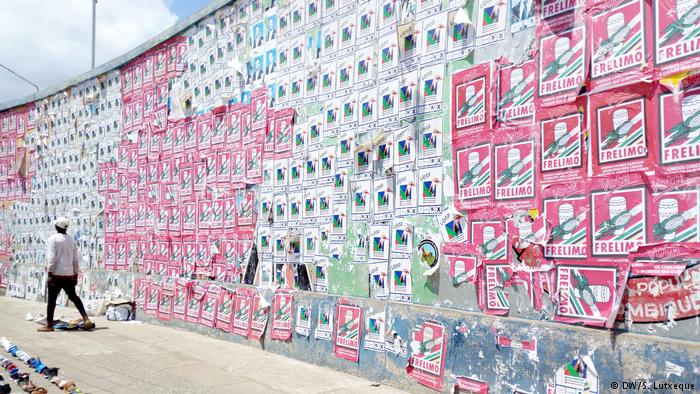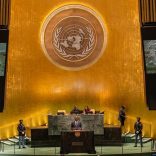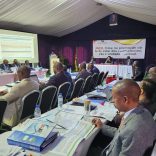Mozambique: Forty detained during post-election protests just freed in Beira
President of Sala da Paz receives death threats after Renamo victory in Nampula – Mozambique

File photo: DW
Head of the ‘Peace Room’ [Sala da Paz] electoral observation platform condemns the atmosphere of intimidation in Nampula, including death and kidnapping threats. The current climate is a result of institutional weakness, experts says.
In Nampula, denunciations of threats to figures involved in the process of voting in last Wednesday’s local elections, which led to the victory of the main opposition party, the Mozambican National Resistance (Renamo), continue.
Like journalists and managers of Catholic radio stations and DW Africa partners Watana and Encontro, Peace Room head António Mutoa says he is also receiving death threats and threats to kidnap members of his family.
The unidentified individuals making the threats accuse the organisation of funding the Catholic radio stations and contributing to the defeat of Frelimo in the local elections of October 10. “They said that since I do not communicate [by always hanging up the phone], they will get my children and my wife and therefore I had better show up. I do not know where they want to take me,” he told DW Africa.
Mutoa, who is also executive director of Mozambican Solidarity, the organisation that runs the Peace Room, appeals to the conscience of politicians. “The votes that are being expressed are those of the Mozambican population. It is the popular will, and this must be made clear,” he says.
ALSO READ: Journalist goes into hiding after receiving threats – AIM report
“The people have said enough”
“What I advise is, if it Frelimo that is ordering the intimidation against us, that the people have said enough, and what we want is what we want,” he adds.
Despite remaining practically incommunicado for fear of new threats, António Mutoa says he is safe and working. He says he does not need police security because he has stopped trusting the police, and promises not to buckle in his task of ensuring that the electoral processes in the country are free, fair and transparent.
“If they threaten me, the whole Peace Room is threatened, but the organisation will continue to play its part, because the Peace Room does not favour anybody. We are currently expanding the organisation to the whole country for the 2019 [general elections],” he says.
Post-election intimidation
António Muajerene, an academic and electoral observer in Nampula, believes that the climate of post-electoral intimidation results from institutional weakness. “We have become accustomed to the fact that after each electoral process we invariably have post-electoral conflict,” he points out.
This is no recent phenomenon: whether in general or local elections, “an environment of tension recurs, characterised by the weakness of the institutions that should ensure the legitimacy of the processes”.
Muajerene says the problem is that there are those who do not feel prepared for any alternation of governance in Nampula. “The one-party context of the past makes this predominate in certain minds in situations where power is being threatened by alternating situations,” he explains.
“There are usually witch-hunts – this has been seen in almost all elections, constraining freedom and active citizenship and involving not only the threats to activists but, in this case, priests too.”
ALSO READ: Death threats against journalists and activists reported Mozambique Elections, AIM report












Leave a Reply
Be the First to Comment!
You must be logged in to post a comment.
You must be logged in to post a comment.